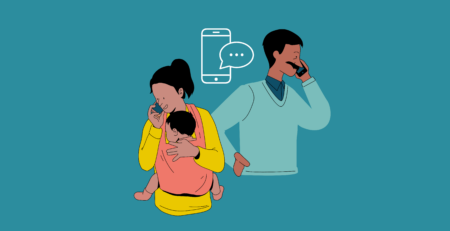Sara Peters wrote this personal story on the impact of the pandemic on working mothers. We wanted to share it through other outlets. That process reminded us that often the voices of mothers are quieted. So this Mother’s Day we wanted to celebrate mothers. We also wanted to remember the ways we can make our country and world better for moms. Thank you to Possip team member Sara Peters for having the desire and conviction to share her story.
This story is so important. As a company that works in education, we saw the impact through the stories of hundreds of thousands of parents and caregivers. Many teachers and school and district leaders are also moms. So they were navigating the challenges of parenting – and educating. We hope you find some appreciation for yourself if you were a working mother. Or we hope you find some policy ideas no matter what.
My story as a working mother could have ended with pandemic job loss in March 2020 as it did for many working mothers — here’s why it did not. – Sara Peters
My story is not unique. In the midst of pandemic job loss, millions of American women know my story all too well.
One year ago, March 2020, I was a working mother. While I worked part-time, I had a balance that worked for my family of five. My three young children were in school, and I had a network of support—friends, caregivers and activities– to help me juggle it all.
However, the part of my story that IS unique is the ending.
Over the first 10 months of the pandemic, at year’s end in 2020, 5.4 million American women had lost their jobs. This is 1 million more lost jobs than men during the same time. Many articles circulate about the disproportionate impact of pandemic job loss–on women, especially women of color, who have faced the most job loss due to systemic racism. There are a multitude of reasons for this– women are over-represented in the service sector, which continued to take a significant hit due to Covid-19 related closures. According to a study by the Center for American Progress, 13 percent of total jobs lost in the recession were in healthcare and education—where women represent 77 percent of employees.
But for women across all sectors, caregiving responsibilities suddenly forced many of them out of the workforce. Mothers, in particular, had to absorb childcare and schooling responsibilities when all the supports around us crumbled. Mothers of small children have experienced pandemic job loss at three times the rate of fathers in the pandemic. In fact, mothers of children 12 years old and younger lost nearly 2.2 million jobs between just February and August 2020.
Why am I not a part of this statistic? Why am I still a working mother today? I can count myself among the ranks of the still-employed because the Founder & CEO of my company is also a woman.
How exactly did this fact translate into me not losing my job?
When my children’s schools closed their doors, I found myself, like so many mothers, an all-of-a-sudden societal safety net. I immediately picked up the schooling duties for a 5th grader, 1st grader and preschooler, and additional household responsibilities, and quickly realized it was simply untenable.
And this is where my story could have ended.
Instead, I took a leave of absence, which was met with implicit understanding by my company’s leader, who is also a mother to school aged children. When we realized we were all in this for the long haul, I extended this leave of absence through the summer. I was able to step back, without having to step completely away.
As some normalcy resumed, and schools began to re-open, Possip met me with flexibility and understanding. I was able to resume work in a reduced capacity, but not at reduced responsibility. This grace and support shows me the appreciation I receive as a multi-dimensional person. My motherhood is not deemed a complication; it is an asset.
I realize I’m fortunate. This pandemic could have derailed my career permanently. I had the financial flexibility to actually be able step back from working. And I’m tremendously fortunate that I work for a woman-run small business. I have benefitted firsthand from the “trickle down” benefit of working for a female entrepreneur. March was Women’s History Month. This month we are celebrating Mother’s Day. In these times and beyond, it’s important to consider the inequity in the workforce. I believe there are takeaways from my story that can help others. As we rebuild as a society, we can ask:
What can companies do now to mitigate the fallout from the “she-cession” for working mothers?
- Listen to what working mothers need. Ask working mothers – “how can we support you to be successful?” As we create the post-Covid workplace, consider things like flexible schedules and thinking outside of the confines of the traditional 5-day work week and 8-5 workday. Create company policies that make working and motherhood not just possible, but sustainable.
- Support women NOT only in the workforce, but support women in leadership. With the exodus of women leaving the workforce today, there will be less female leadership tomorrow. Create intentional pathways for women to succeed and advance up the proverbial latter.
The decisions companies make today, will have lasting, life-altering outcomes for women, families, working mothers, and the economy down the road.
Families are stronger when women succeed in the workplace. Companies benefit from female representation at all levels. Research from McKinsey shows that company profits can be close to 50 percent higher when women are well represented at the top. Beyond that, as evidenced in my case, women have an immense impact on a company’s culture.
My CEO, Shani Dowell, the CEO of Possip, created an intentional culture to support women at all levels. When all norms of the workplace have been upended, let’s embrace this opportunity before us. Let’s create a better and more inclusive workplace for women.





